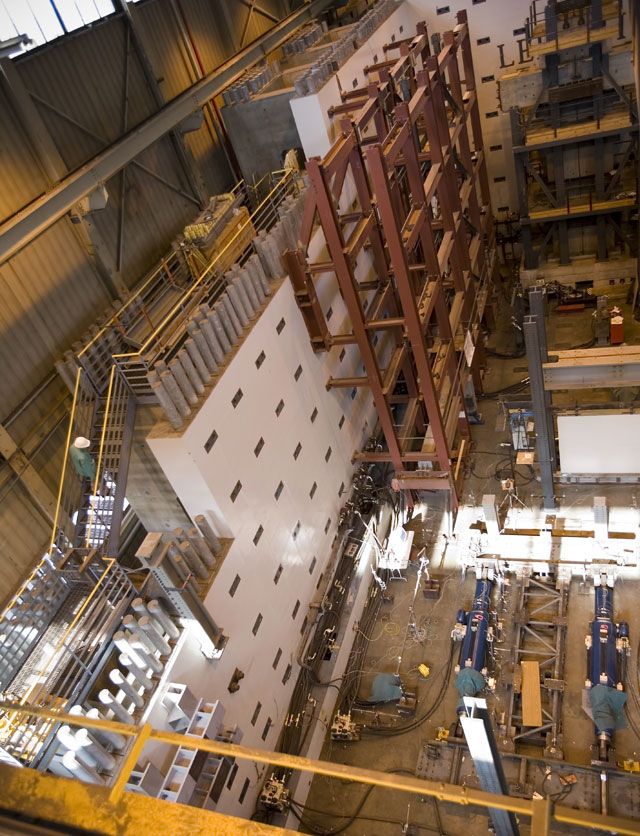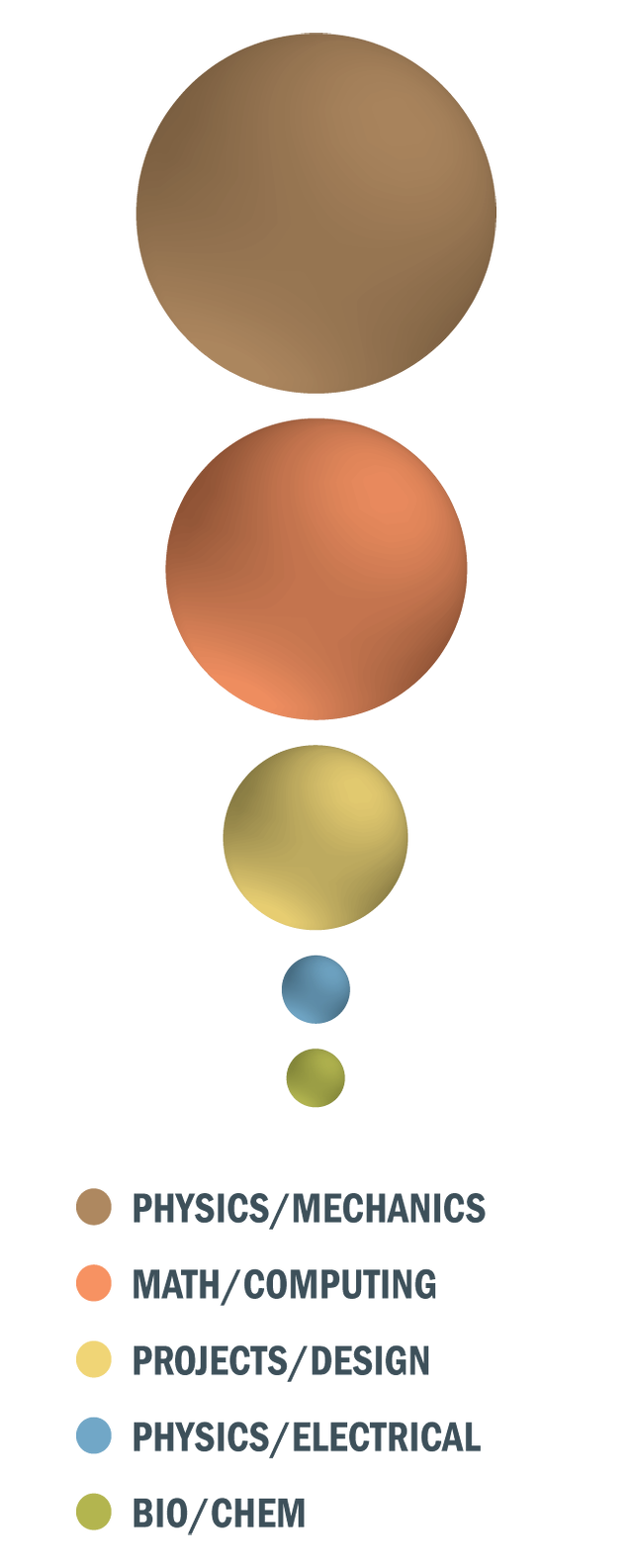Engineering systems are, in many ways, the backbone of our society. Every product and device you use relies upon engineering systems: the product itself; the transportation, communications and service infrastructure used to manufacture the product, deliver it and sustain it; and the process by which it was designed, produced and supported. Every building, bridge and highway that forms the infrastructure of a community, as well as the energy, water and communications systems that give it life, relies upon skilled application of engineering systems.
Focus Areas
As a student in this broad field, you will become adept at computer-aided design (CAD) software, rapid prototyping facilities and equipment such as computer numerical control (CNC) milling and injection-molding machines. Your work in this area may focus on product design and prototype development, or you may be more interested in working on the systems that make manufacturing and construction possible. Regardless of your specific focus, you'll invent, design and bring to life new processes, better systems and innovative products and structures.
Student projects and interests may focus on these topics:
- Vehicle modeling and novel materials for lighter, stronger design
- Energy conversion and control of subsequent forces/motion; think about combustion engines, rocket propulsion, even bicycle systems
- Construction of bridges, buildings and transportation systems that can withstand earthquakes, fire and other hazards
- Efficient consumer distribution systems for drinking water, electricity, natural gas, etc.
- Robotics, automation, industrial information systems and manufacturing/supply-chain technology
Research and Resources
Lehigh research endeavors in this area cut across 12 orders of magnitude—from the design of massive skyscrapers and bridges, to the manufacturing systems for nano-sized devices intended for various medical or communications uses. Students in this area use facilities such as these to advance their understanding of their chosen pursuits:
- Lehigh's Advanced Technology Center for Large Scale Systems (ATLSS), along with the Fritz Laboratory, form an incredible resource for students engaged in structural engineering. Current research includes real-time seismic testing of large-scale structures and exploration into next-generation materials such as composites, alloys and concrete.
- The Thomas E. Jackson Motive Power Testing Facility is a state-of-the-art undergraduate teaching laboratory that supports undergraduate and graduate research on all aspects of engine design and operation, including fuels, pollution and performance enhancement.
- The Fluid Mechanics Laboratory includes two large-scale water channels, a wave tank, a wind tunnel and a pressure-driven air facility, providing characterization of complex flows in water and air.
- The George E. Kane Manufacturing Technology Laboratory focuses on equipment, work systems, machinery and automation systems for today's manufacturing environment. Its purpose is to provide students the opportunity to acquire hands-on experience in the use of the engineering equipment, systems and tools in the lab.
- The Automation and Robotics Lab contains industrial robots used for various applications. Project work includes the control of dynamic systems as well as issues related to intelligent robotics.


